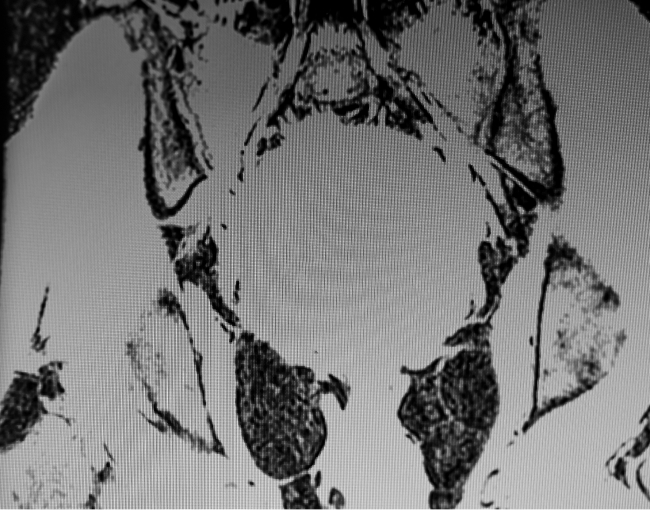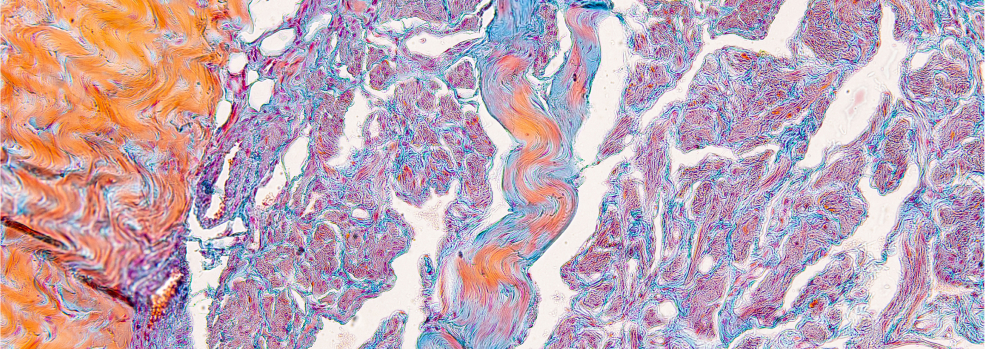Ovarian Cancer

Ovarian cancer is a type of cancer that begins in the ovaries and is often detected at later stages due to its subtle symptoms. There are different types of ovarian cancer, including epithelial ovarian cancer, which is the most common, as well as germ cell and stromal cell tumors. At Burjeel Cancer Institute, we offer personalized treatment plans for ovarian cancer patients, including advanced surgery, chemotherapy, and targeted therapies, with a focus on improving outcomes and quality of life.
Symptoms of Ovarian Cancer
- Bloating or swelling in the abdomen
- Pelvic or abdominal pain
- Difficulty eating or feeling full quickly
- Frequent or urgent urination
- Unexplained weight loss
- Fatigue
- Menstrual irregularities
- Pain during intercourse

Risk Factors of Ovarian Cancer
Age
Most ovarian cancers occur in women over 50, with the highest risk in women over 60.
Family History
A family history of ovarian, breast, or colorectal cancer increases the risk, especially if related to BRCA1 or BRCA2 gene mutations.
Inherited Genetic Mutations
Inherited mutations in BRCA1, BRCA2, and other genes such as Lynch syndrome increase the risk.
Reproductive History
Women who have never been pregnant, or those with early menstruation or late menopause, have a slightly increased risk.
Hormone Therapy
Postmenopausal hormone replacement therapy (HRT) may increase the risk of ovarian cancer.
Obesity
Being overweight is associated with a higher risk of developing ovarian cancer.
Diagnostic Procedures of Ovarian Cancer
Common Symptoms of Ovarian Cancer include
Pelvic Exam
A routine pelvic exam helps detect abnormalities in the ovaries and surrounding tissues.
Transvaginal Ultrasound (TVUS)
An imaging test used to create detailed images of the ovaries and detect tumors or abnormalities.
CA-125 Blood Test
Measures the level of CA-125, a protein that may be elevated in women with ovarian cancer.
CT Scan and MRI
Advanced imaging technologies used to locate tumors, assess their size, and determine whether cancer has spread.
PET-CT Scan
A highly sensitive imaging tool that helps detect the spread of cancer throughout the body.
Biopsy
A tissue sample is taken from the ovaries or surrounding areas to confirm the presence of cancer cells.

Treatment Options
Targeted Therapy and Immunotherapy
- PARP Inhibitors: Drugs like olaparib are used to target cancer cells in women with BRCA mutations, preventing the cancer cells from repairing their DNA.
- VEGF Inhibitors: Drugs such as bevacizumab help block the formation of new blood vessels that tumors need to grow.
- Immunotherapy: Emerging treatments may help stimulate the immune system to recognize and destroy cancer cells, though not yet standard for ovarian cancer.
Chemotherapy and Medical Oncology
- Intraperitoneal Chemotherapy (IP): Chemotherapy is delivered directly into the abdominal cavity, allowing higher concentrations of the drugs to reach the cancer.
- Adjuvant and Neoadjuvant Chemotherapy: Chemotherapy may be given before surgery to shrink tumors or after surgery to eliminate any remaining cancer cells.
- Platinum-Based Chemotherapy: Drugs like cisplatin and carboplatin are commonly used for ovarian cancer, often in combination with other chemotherapy agents.
Radiation Therapy
- External Beam Radiation Therapy (EBRT): Radiation is directed at the cancerous area to destroy cancer cells and reduce the size of the tumor. It is not commonly used as the primary treatment for ovarian cancer but may be used in certain cases.
Surgical Treatment
- Cytoreductive Surgery (Debulking): Removal of as much of the tumor as possible, often including the ovaries, fallopian tubes, uterus, and other affected tissues.
- Total Hysterectomy with Bilateral Salpingo-Oophorectomy: Removal of both ovaries and fallopian tubes, as well as the uterus, often performed when the cancer has spread.
- Lymph Node Removal: Removal of nearby lymph nodes to check for the spread of cancer.
- Minimally Invasive Surgery: Laparoscopic or robotic-assisted surgery may be used for early-stage cancers or for diagnostic purposes.
Multidisciplinary Approach
Risk Factors for ovarian cancer include
- Gynecologic Oncologists
- Medical Oncologists
- Radiation Oncologists
- Surgical Oncologists
- Radiologists
- Pathologists
- Genetic Counselors
- Oncology Nurses
- Palliative Care Specialists
Our team works together to provide each patient with a personalized treatment plan tailored to their needs and cancer stage


Supportive Care and Patient Services
Accurate and early diagnosis of ovarian cancer is key to successful treatment. We offer a range of diagnostic procedures, including
Nutritional Counseling
Tailored dietary advice to help manage side effects and maintain strength during treatment.
Fertility Preservation
For women who wish to preserve their fertility, we offer options such as egg freezing before treatment begins.
Palliative Care
Symptom management and quality-of-life support for patients with advanced or metastatic ovarian cancer.
Psychosocial Support
Counseling services to help patients and their families cope with the emotional and psychological challenges of a cancer diagnosis.
Physical Rehabilitation
Post-surgical rehabilitation to help patients regain strength and function after surgery.
Survivorship Program
Ongoing care and support for women who have completed treatment, focusing on long-term health and recurrence prevention.
Meet Our Experts
We provide a variety of supportive care services to help women with ovarian cancer manage their treatment and improve their quality of life
Patient Journey
We guide ovarian cancer patients through every step of their treatment journey, from diagnosis to recovery
Initial Consultation
A thorough evaluation with the gynecologic oncology team, including diagnostic imaging and tests to assess the extent of the disease.
Personalized Treatment Plan
A customized treatment plan is developed based on the patient’s diagnosis, cancer stage, and overall health.
Treatment and Support
Patients receive comprehensive care, supported by our multidisciplinary team and personalized supportive care services.
Follow-Up Care
After treatment, patients receive regular follow-ups to monitor their recovery, assess treatment response, and manage long-term health.





